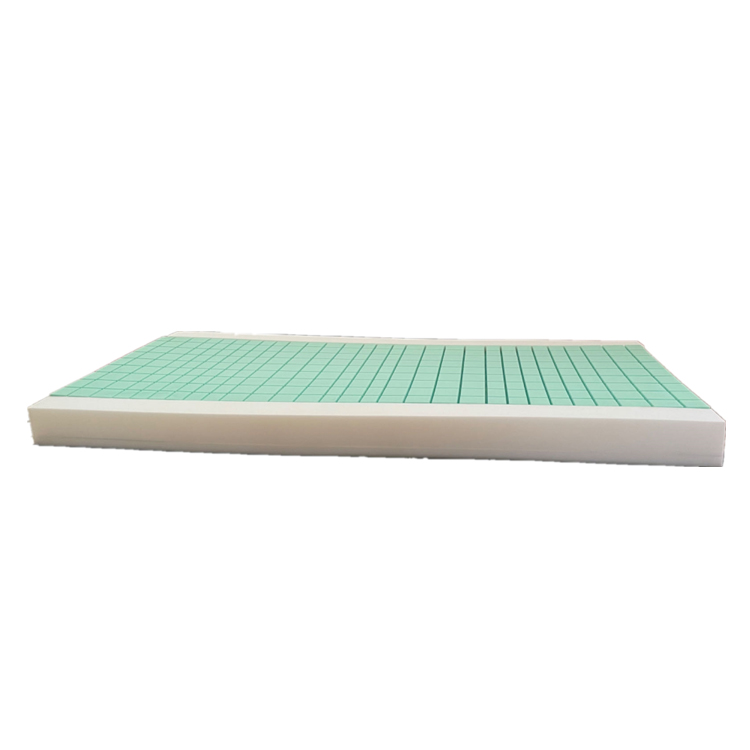Choosing the Right Memory Foam Mattress for Hospital Beds and Patient Comfort
The Benefits of Memory Foam Mattresses for Hospital Beds
In the realm of healthcare, patient comfort and care are paramount. Among the various aspects that contribute to a patient’s well-being during their stay in a hospital, the quality of the mattress they lie on is often overlooked. With an increasing number of patients requiring extended hospital stays or rehabilitation, the choice of mattress has become a critical factor in enhancing recovery experiences. Memory foam mattresses have emerged as a popular choice for hospital beds due to their unique properties that cater to the specific needs of patients.
Understanding Memory Foam
Memory foam, originally developed by NASA in the 1960s to improve the safety of aircraft cushions, is a viscoelastic material that conforms to the body’s contours. This characteristic allows it to distribute weight evenly across the surface, reducing pressure points that can lead to discomfort or even serious health complications, such as bedsores. The material's ability to absorb excess moisture and its hypoallergenic properties also make it an excellent option for medical environments.
Pressure Relief and Comfort
One of the primary advantages of memory foam mattresses is their capacity for pressure relief. Patients confined to a hospital bed for extended periods are at risk of developing pressure ulcers, also known as bedsores, due to prolonged pressure on specific areas of the body. Memory foam’s contouring capabilities help to alleviate these pressure points by evenly distributing body weight and minimizing friction against the skin. As a result, patients experience enhanced comfort, which can contribute positively to their overall healing process.
Enhanced Support
Every patient has unique needs based on their physical condition, which may include different levels of support for varying body types and health issues. Memory foam mattresses provide adequate support for patients with limited mobility, offering a balance between firmness and softness that helps align the spine and reduce strain on muscles and joints. The mattresses conform to the patient’s shape, providing enhanced support where it is needed most, which can be particularly beneficial for those recovering from surgery, injury, or illness.
memory foam mattress for hospital bed

Temperature Regulation
An often underappreciated aspect of memory foam mattresses is their ability to regulate temperature. Traditional mattresses can retain body heat, leading to discomfort, especially in patients who may already be experiencing fever or other temperature-related health issues. Many modern memory foam mattresses now incorporate cooling technologies, such as gel-infused layers that help dissipate heat and maintain an even temperature throughout the night. This feature can significantly increase a patient’s comfort, leading to improved rest and recovery times.
Durability and Hygiene
In a hospital setting, hygiene is of utmost importance. Memory foam mattresses are often designed with antimicrobial properties, making them resistant to bacteria, mold, and mildew. This helps to ensure a clean and safe environment for patients. Additionally, these mattresses are durable, providing long-lasting use even in high-traffic hospital settings. The easy-to-clean covers and materials are another advantage, allowing for quick disinfection and minimal downtime, which is essential in maintaining patient safety and health standards.
Customization and Adjustability
Hospital beds often come equipped with adjustable features to cater to patient comfort and medical needs. Memory foam mattresses can be customized to fit these beds without compromising their functionality. They can accommodate different elevation settings common in hospital beds, such as raising the head or feet, allowing for personalized comfort and support tailored to each patient’s specific situation.
Conclusion
In summary, the integration of memory foam mattresses into hospital beds represents a significant advancement in patient care. From providing superior pressure relief and comfort to enhancing support and hygiene, these mattresses address the unique challenges faced by patients in a healthcare environment. With continued emphasis on patient-centered care, memory foam mattresses are not just a luxury but a vital component of modern medical treatment strategies. As healthcare continues to evolve, the focus on comfort and recovery will undoubtedly lead to more innovations in the type of care provided within hospitals, with memory foam mattresses leading the way.
-
The Effect of Coconut Foam Mattress Breathability and Humidity Regulation on Improving Sleep QualityNewsJul.03,2025
-
How Wave Mattress Systems Improve Blood Circulation During ImmobilityNewsJul.03,2025
-
The Climate-Adaptive Sleep Revolution: Exploring the Benefits of Cooling Gel Memory Foam MattressesNewsJul.03,2025
-
Exploration of the Role of Coconut Foam Mattress in Preventing Bedsores in the ElderlyNewsJul.03,2025
-
Comparing Wave Mattress and Air Mattress: Which Is Better for Medical Use?NewsJul.03,2025
-
Analysis of Comfort and Environmental Performance of Natural Latex and Coconut Foam MattressNewsJul.03,2025
-
Multi-Layer Construction for Enhanced Performance in Gel Mattress PadNewsJun.24,2025

